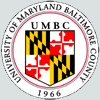| |||||||||||||||||||
Tips:  Range on the Protein: Protein ID Protein Position Domain Position: 
|
|---|
Weblogos are Copyright (c) 2002 Regents of the University of California
| DMDM_info@umbc.edu | 1000 Hilltop Circle, Baltimore, MD 21250 | Department of Biological Sciences | Phone: 410-455-2258 |




 Anterior Gradient (AGR) family; members of this family are similar to secreted proteins encoded by the cement gland-specific genes XAG-1 and XAG-2, expressed in the anterior region of dorsal ectoderm of Xenopus. They are implicated in the formation of the cement gland and the induction of forebrain fate. The human homologs, hAG-2 and hAG-3, are secreted proteins associated with estrogen-positive breast tumors. Yeast two-hybrid studies identified the metastasis-associated C4.4a protein and dystroglycan as binding partners, indicating possible roles in the development and progression of breast cancer. hAG-2 has also been implicated in prostate cancer. Its gene was cloned as an androgen-inducible gene and it was shown to be overexpressed in prostate cancer cells at the mRNA and protein levels. AGR proteins contain one conserved cysteine corresponding to the first cysteine in the CXXC motif of TRX. They show high sequence similarity to ERp19.
Anterior Gradient (AGR) family; members of this family are similar to secreted proteins encoded by the cement gland-specific genes XAG-1 and XAG-2, expressed in the anterior region of dorsal ectoderm of Xenopus. They are implicated in the formation of the cement gland and the induction of forebrain fate. The human homologs, hAG-2 and hAG-3, are secreted proteins associated with estrogen-positive breast tumors. Yeast two-hybrid studies identified the metastasis-associated C4.4a protein and dystroglycan as binding partners, indicating possible roles in the development and progression of breast cancer. hAG-2 has also been implicated in prostate cancer. Its gene was cloned as an androgen-inducible gene and it was shown to be overexpressed in prostate cancer cells at the mRNA and protein levels. AGR proteins contain one conserved cysteine corresponding to the first cysteine in the CXXC motif of TRX. They show high sequence similarity to ERp19. No pairwise interactions are available for this conserved domain.
No pairwise interactions are available for this conserved domain.








